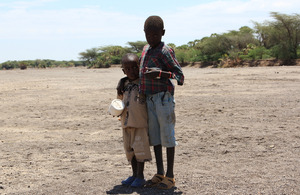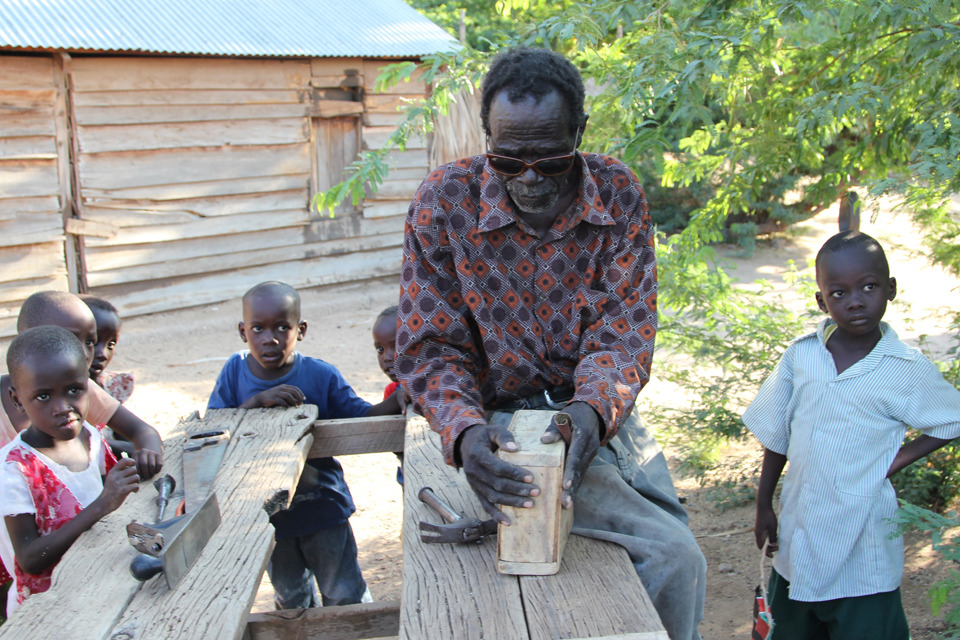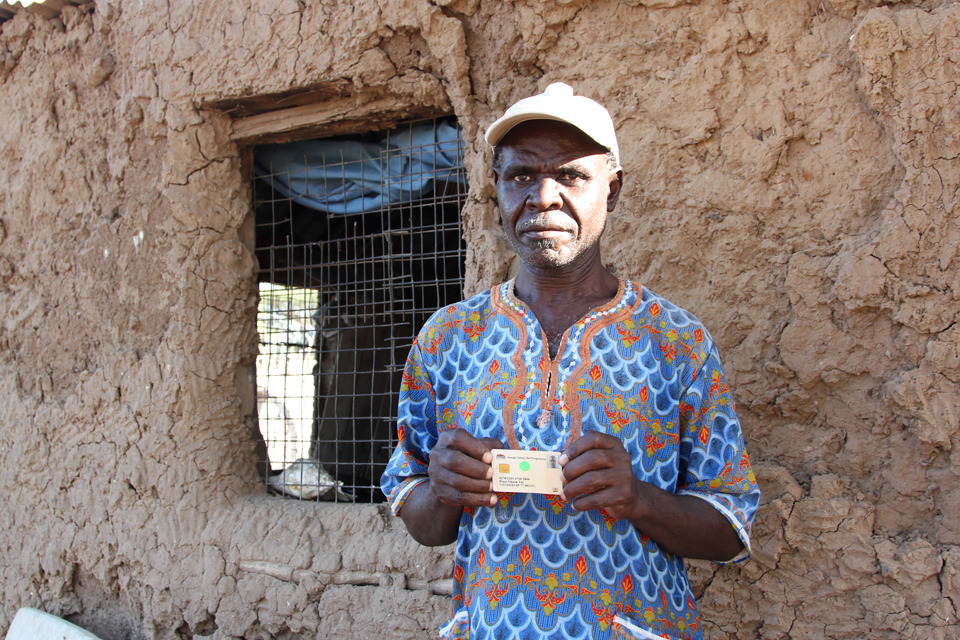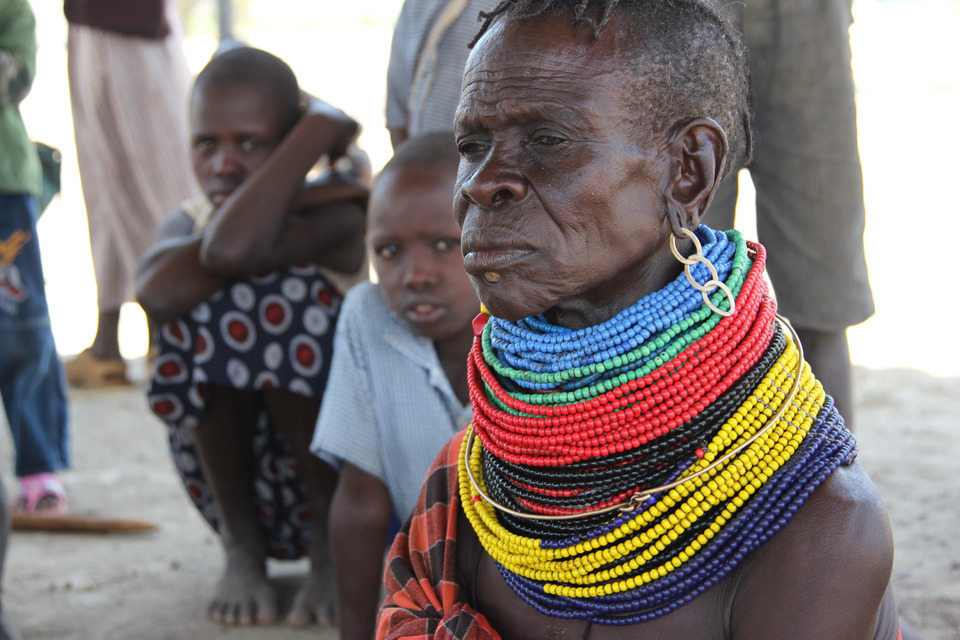Poverty and vulnerability tackled in Turkana, Kenya
How UK aid is protecting some of the most vulnerable people in Kenya through cash transfers

UK aid is improving the lives of the poorest Kenyans in Turkana, the country's poorest region. Picture: Marisol Grandon/DFID
The Hunger Safety Net Programme (HSNP) has been running in Turkana since 2008 and is reaching 60,000 of the most vulnerable households with small cash transfers. The money means that people can buy what they need most, which in turn supports the local economy.
The programme uses a smartcard system to enroll people, with their fingerprints used as a unique ‘PIN’ code to ensure that entitlements go to the right person. It puts cash directly into the hands of those who need it most and allows them to make their own decisions about how best to spend it.
Protection against the unexpected
The regular, small sums protect people against shocks like unexpected expenses or failed crops, and prevent them falling back into poverty. It means they can afford basic provisions and other essential services, like healthcare and education.
Breaking the cycle of poverty
Three of the programme’s beneficiaries explain how it has helped them and what they have been able to do:

Wilson is blind and uses the money he receives to buy materials to make moneyboxes. Picture: Marisol Grandon/DFID
Wilson, a carpenter from Napetet, is blind. He uses the money to buy clothes and timber to make items to sell. He lives in Napetet, a small suburb on the outskirts of Lodwar, a frontier town in the inhospitable terrain of Turkana in Kenya. Here, even a short period of failed rains can push vulnerable people like Wilson into poverty.
Yet Wilson bought these tools and timber using cash received as part of the HSNP.
Having the tools means that he can make a modest living from his carpentry instead of relying on livestock which died in large numbers due to the drought across the region in 2011. With the small profits he has made, Wilson, who is 58, has been able to buy himself clothing and food. He has also invested in a goat which Turkana people rely on for milk and meat.
“Before the programme I was walking around almost naked because I couldn’t afford clothes,” he says. “Now I am thankful and grateful for this assistance.”

Peter holds the smartcard that ensures he gets the money he's entitled to. Picture: Marisol Grandon/DFID
Peter is now supporting his family with profits from a fish business, thanks to the HSNP investment
Father of 6, Peter Okech, 57, carefully sets out a batch of freshly fried tilapia to cool. Later on, he will sell the fish and other products, such as mandazis - a kind of doughnut which is a favourite Kenyan streetfood - at the market.
He lives in Napetet, a small suburb of Lodwar in Turkana - where 95% of the population live on less than $1 dollar a day.
Not long ago, Peter could barely afford meals for his family. Now he is enrolled on the HSNP, he is receiving about £8 a month which he invests in means to help himself. With his wife Abigail, he set up the fish business and has been able to buy a goat.
With the meagre profits he is making, he is now also able to pay medical bills for his family and to send his children to school.

Margaret uses the cash transfers for essential supplies, but also to send her daughters to school. Picture: Marisol Grandon/DFID
Margaret, a mother from a remote Turkana village, is using the cash transfer for essential supplies - and also to send her daughters to school. Margaret lives in the remote village of Kataboi near the salt desert Lake Turkana. Many residents here rely on the land and live in traditional Turkana thatched housing made from grass and brush wood.
The drought of 2011 has made many people in the area very vulnerable.
“Everything here depends on rain,” she explains. “Water is life. Without water there is no productivity in livestock.
“Nothing can grow. We have nothing for making baskets. And even the lake. Without water going to the lake, there are no fish. So that has affected us at large.”
Using the first round of payments on the HSNP, Margaret sent her daughters to secondary school in Kakuma, a nearby Turkana town which in Swahili means “nowhere”. After the bare essentials she bought for survival, investment in her daughters’ education was absolutely the next priority.
“It benefits them because they’ll be self-reliant,” she says. “And in my old age, I know that there will be somebody who I can lean on.”
Facts and stats
Cash transfers are predictable payments made directly to poor people.
The transfers can stimulate local markets and boost food production and security.
As well as cash, transfer programmes can include vouchers, cash for work and food transfers.
Cash and direct transfer programmes were supported in nine countries by DFID in 2010-11: Bangladesh, Ethiopia, Kenya, Mozambique, Rwanda, Uganda, Yemen, Zambia and Zimbabwe.